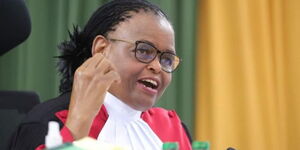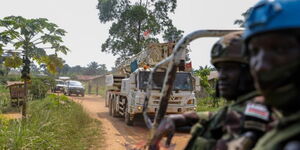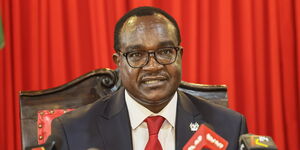Kenya has announced plans to begin drilling for oil at the Lokichar Oil Fields in Turkana County early next year, marking a significant milestone in the country's long-awaited petroleum production programme.
Energy Cabinet Secretary Opiyo Wandayi confirmed that the government had approved the project, which is expected to begin between January and February 2026.
During a visit to Turkana County on Friday, Wandayi stated that the government was prepared to proceed, pending only parliamentary approval before the official launch.
“In line with the Kenyan Constitution and the Petroleum Act 2019, I have officially approved the development of the field plan for the Lokichar Oil Project. In 30 days, the plan and the production sharing contracts will be submitted to Parliament for approval before the project begins,” Wandayi stated.
He expressed optimism that the oil project would significantly boost the national economy and create employment opportunities for local residents once production commences.
Earlier this year, in June, Wandayi had revealed that the state is keen to move past the exploration phase and into full-scale development of the Turkana oil fields, marking a significant milestone in the country’s energy sector.
The Lokichar Basin, believed to hold substantial oil reserves, has remained underdeveloped despite years of exploration.
The situation was further complicated by the departure of British firm Tullow Oil in April, raising uncertainty about the project's future. However, the entry of Gulf Energy Ltd, which finalised the acquisition of Tullow’s local interests, revived hope for progress.
Even so, according to initial estimates from Tullow Oil and its former joint venture partners, the South Lokichar Basin holds about 560 million barrels of recoverable oil.
However, the oil initially in place (OIP) across the basin could be as high as 4 billion barrels, though only a portion is extractable under current economic and technical conditions.
The South Lokichar Basin region has been the focus of intense exploration since the first major discovery was made by Tullow Oil in 2012 at the Ngamia-1 well.
Subsequent exploration uncovered additional fields such as Amosing, Twiga, and Etuko, establishing the basin as the core of Kenya’s oil ambitions.
Meanwhile, Turkana leaders led by East African Community (EAC) Cabinet Secretary Beatrice Askul welcomed the development, terming it a game-changer for the region.
According to the leaders said the project would open up Turkana to more infrastructure investments and improve livelihoods for residents who have long awaited tangible benefits from the oil discovery.












